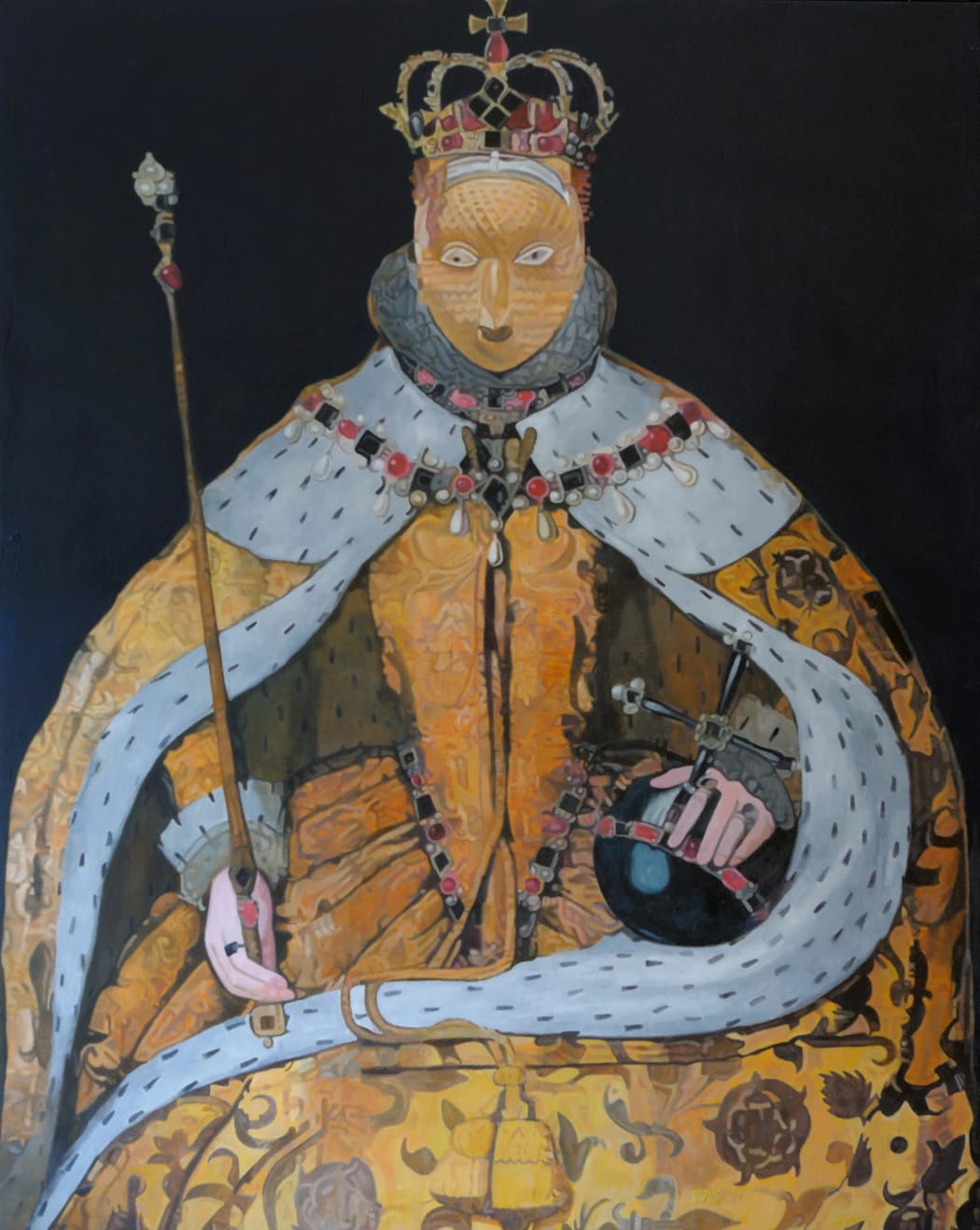
One might say that Yoruba is among the most powerful answers to the legacies of European empire. As the history of empire coalesced the world around a few European languages and the Judeo Christian religions, the potency and charisma of Yoruba beliefs, hermeneutics, aesthetics and theology has sustained its hold upon people across the African diaspora. And continues to grow. Wole Languju’s striking portraits are a testimony to this.
Though his figures are clothed in European finery, the Ori, the heads of his subjects, where philosophy and spirit both reside, are Yoruba. The African intellect embodied here, creates order and beauty through the crush of history. One is reminded of how, several generations ago, the art historian Sylvia Boone introduced American readers to the deep social implications of West African Art, with particular attention to masking, arguing against the simple distinctions often made in the West between beauty and ethics, or the functional and fine arts. In his invocation and remixing of traditional Gelede masks, Lagunju reinvigorates these arguments, creating unique works that place viewers inside his tradition specifically and more broadly inside the political history of Black freedom struggles and social movements. The work is beautiful and captivating, it carries an emotional charge, and yet it is also painstakingly detailed, exquisite and precise in its references to sartorial and sculptural artifacts and their histories.
The intellectual potency of this work is found in more than the juxtaposition of two traditions: the West and West Africa. It is also found in the structural repetitions that occur between the European and African aesthetics, the human commonality that persists in a highly fraught history, and the resourcefulness of creating something new as time moves forward, while still holding on to tradition. The lines and flourishes, shapes and gestures are complementary, a lace ruffle here, a lip carved there. His use of color is a garden, leaning towards the organic yet also geometric in form. Though lush, the colors are also soft. Lagunju reminds us that time fades, blurs, and wounds the world, but we can create new magic with what remains.
By Imani Perry.
Imani Perry is The Hughes-Rogers Professor of African American Studies at Princeton University and the author of 6 books including the 2019 Pen America Bograd Weld award winning, Looking for Lorraine: The Radiant and Radical Life of Lorraine Hansberry.
